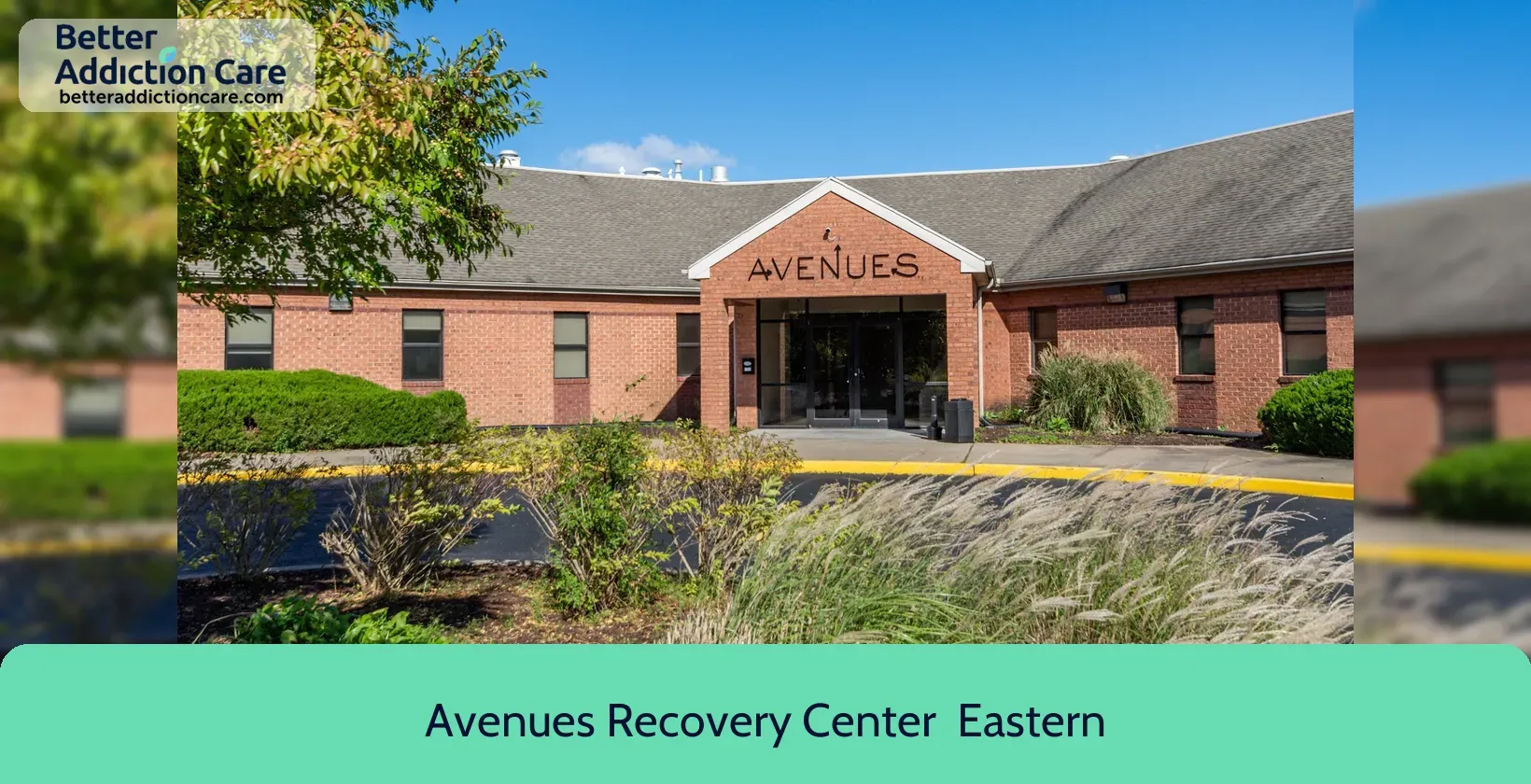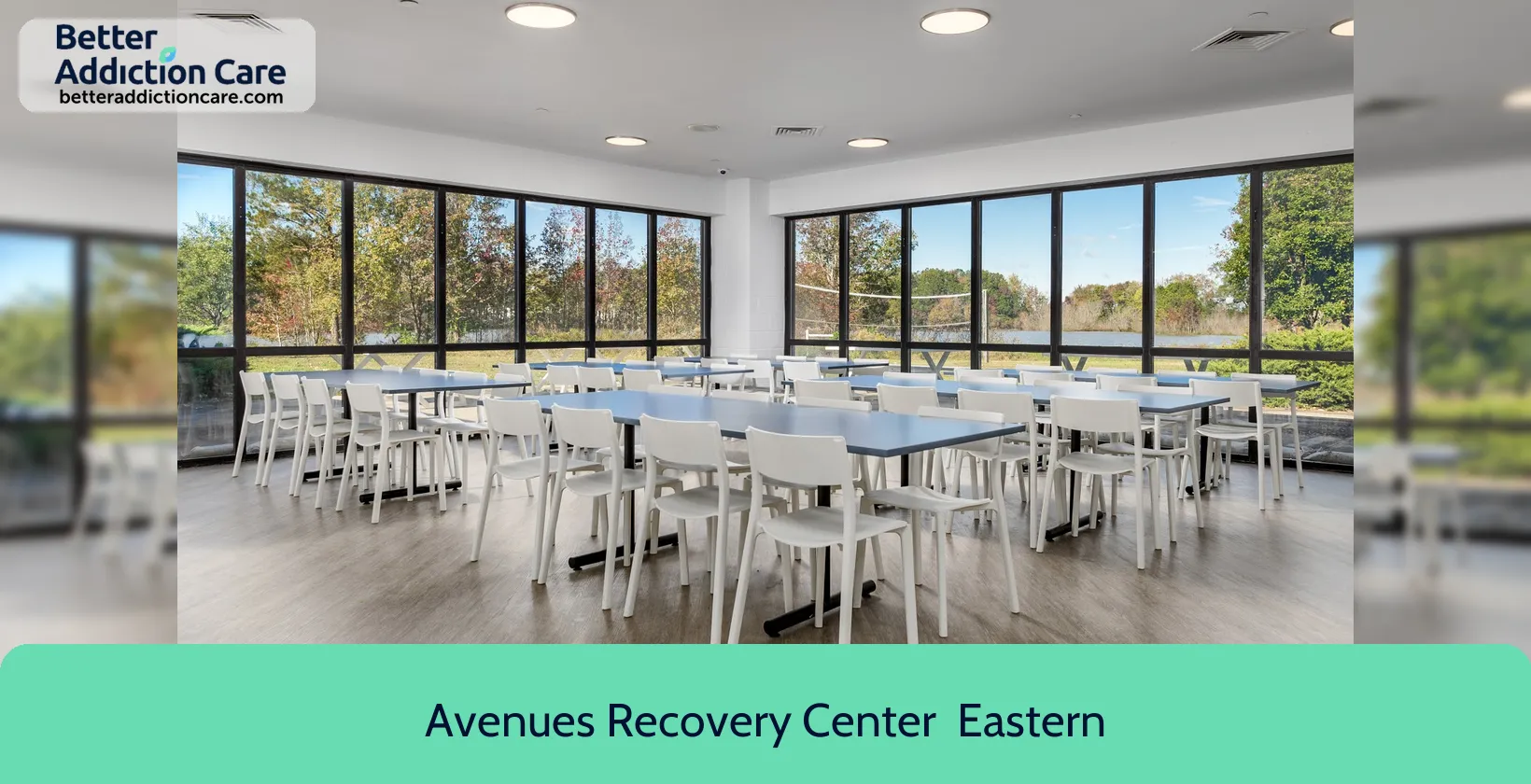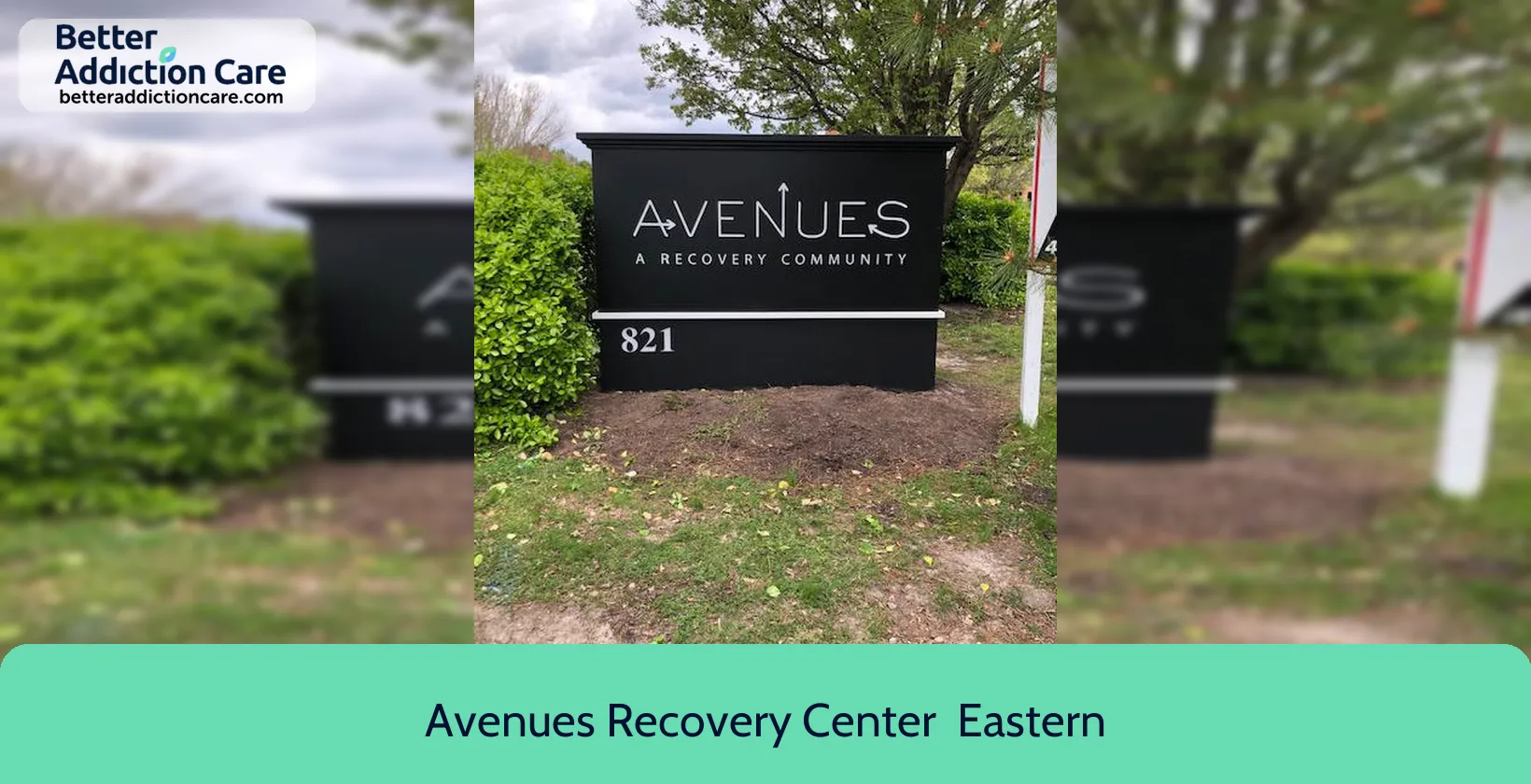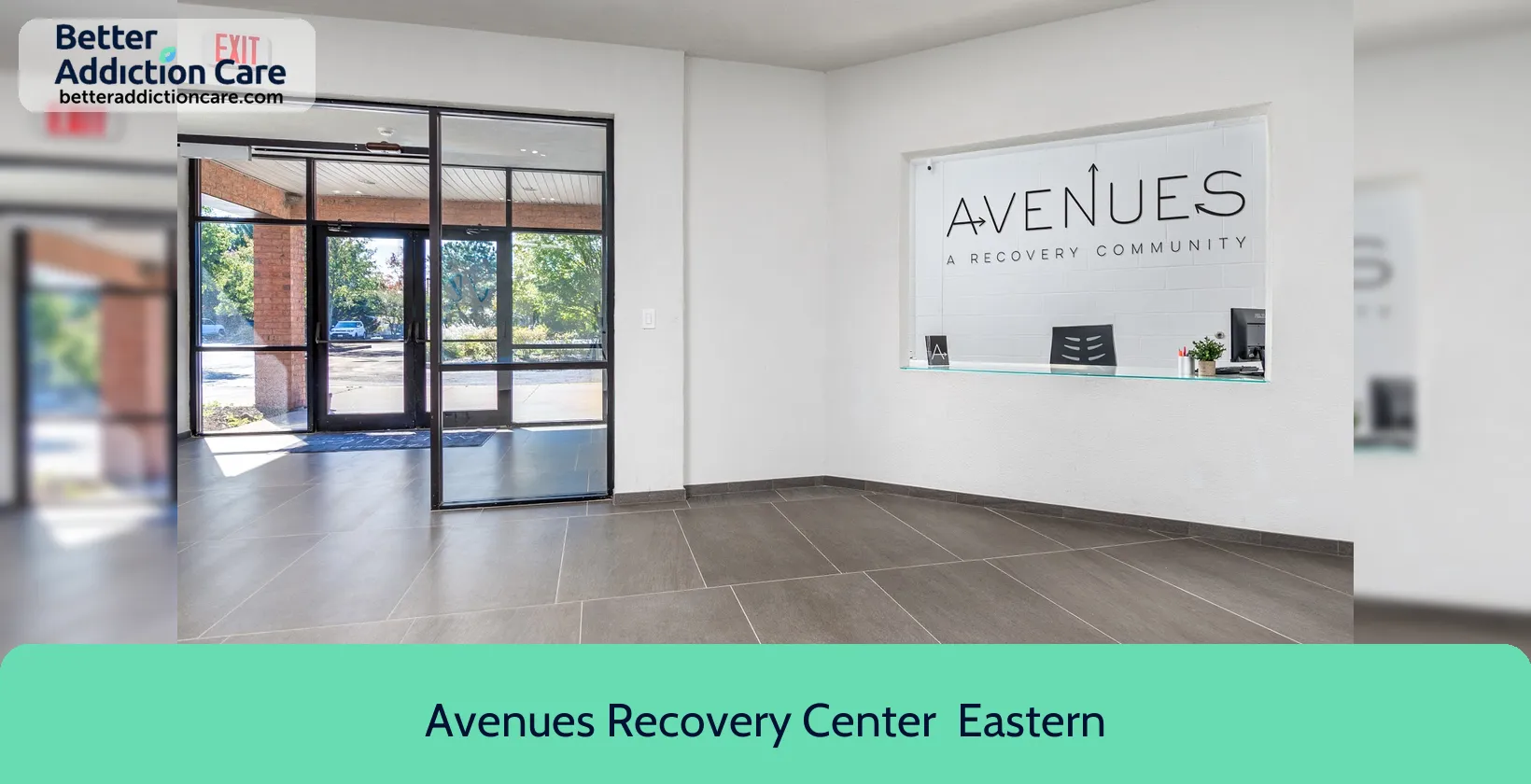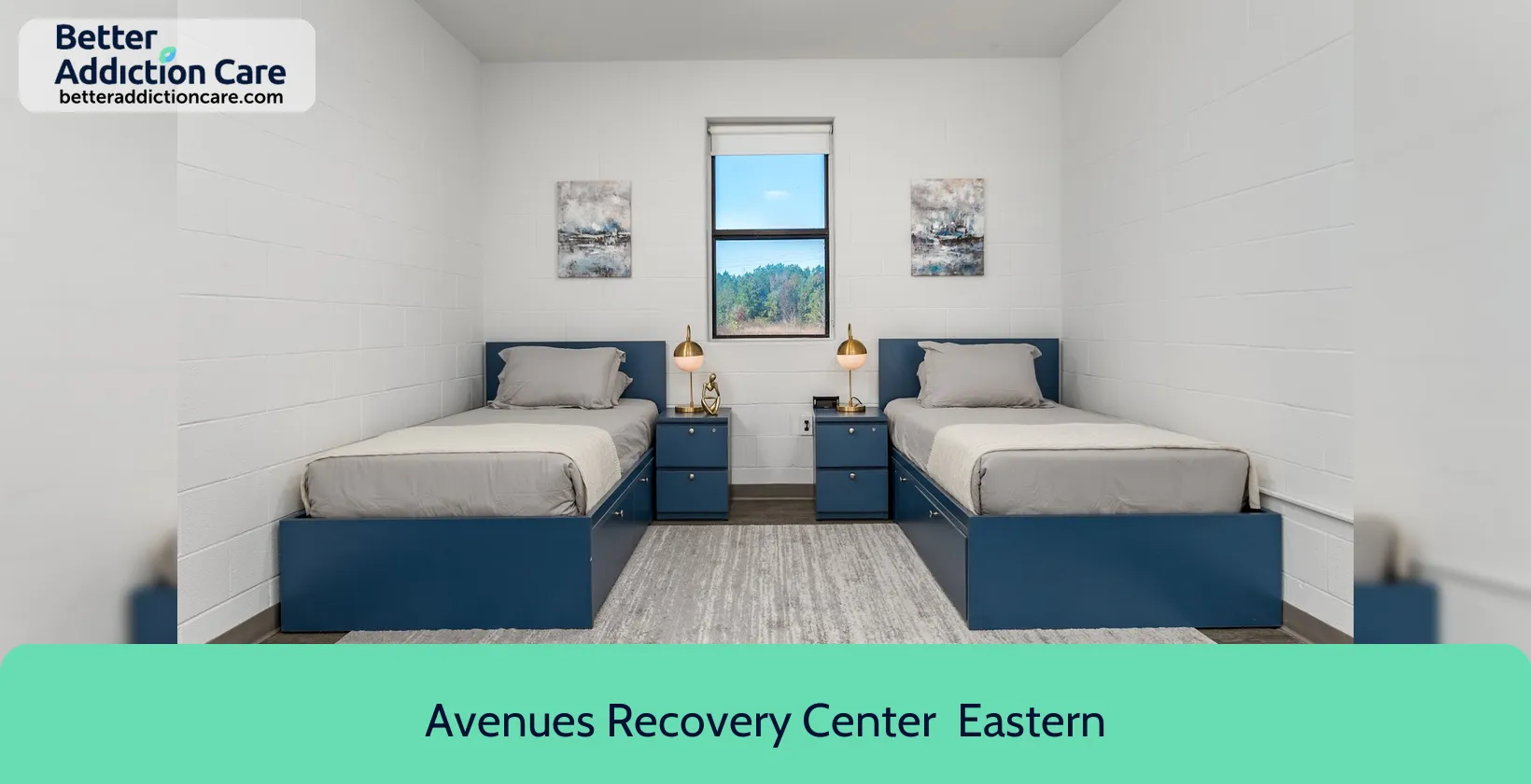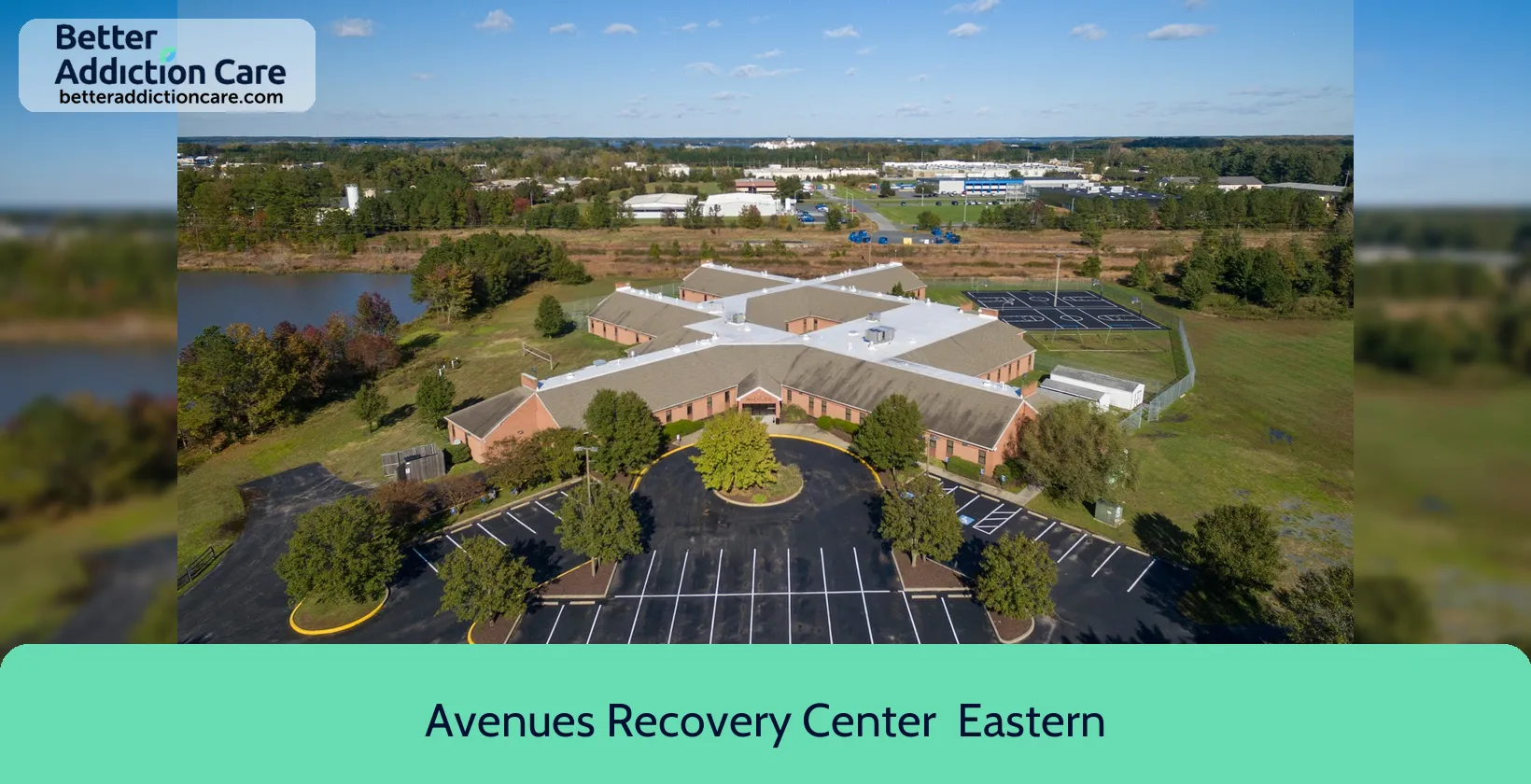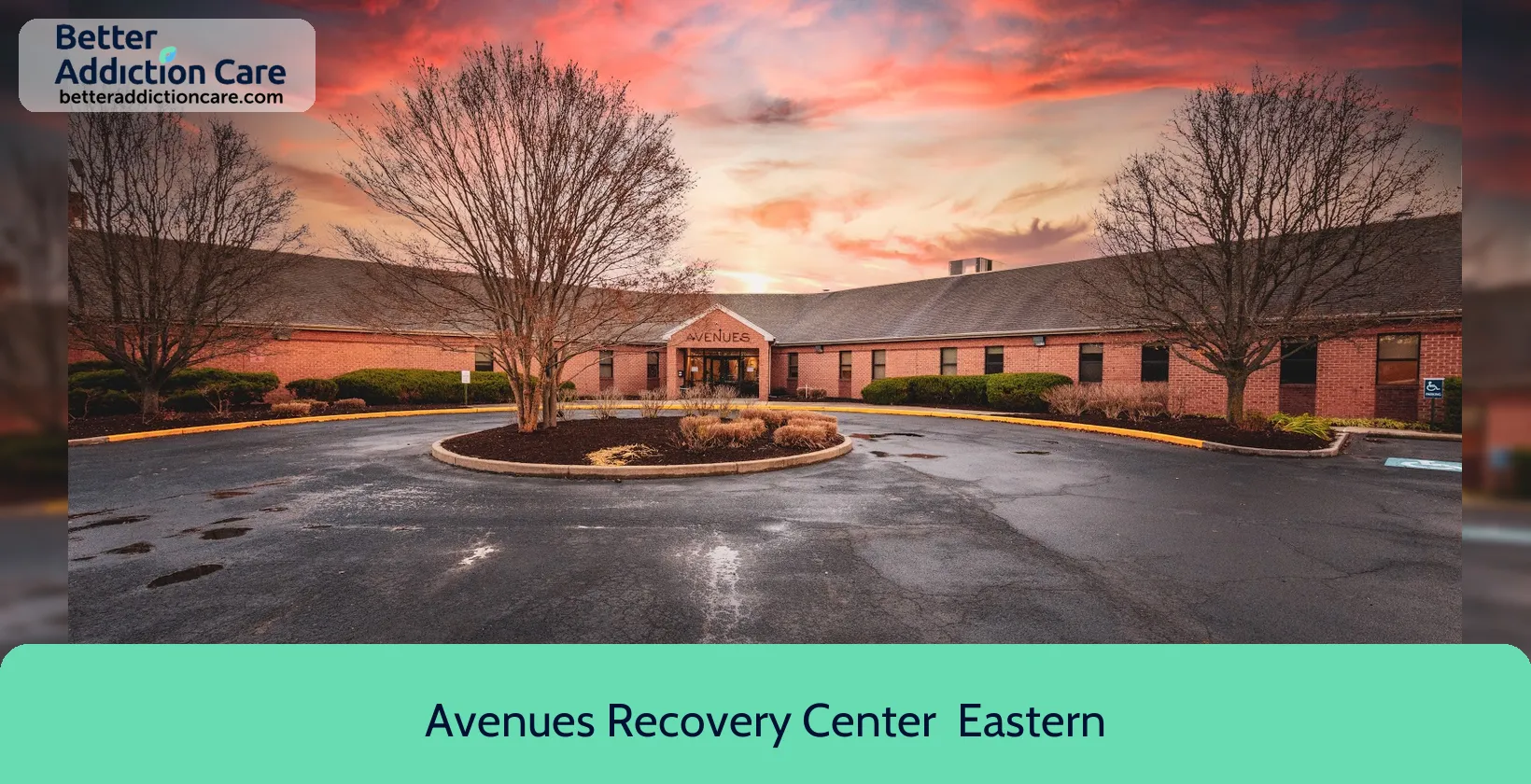Avenues Recovery Center - Eastern Shore
Overview
Avenues Recovery at Eastern Shore, located in Cambridge, Maryland, is a premier alcohol and drug rehabilitation center offering comprehensive services for young adults and adults. The facility provides a range of treatments, including detoxification, medication-assisted treatment, inpatient care, outpatient programs, and aftercare services. Specialized detox programs are available for cocaine, marijuana, opiates, and heroin, ensuring tailored care for each substance.
Situated in a modern building with 104 beds and extensive outdoor space, Avenues Recovery offers a conducive environment for healing and recovery. The facility also features a gym and incorporates various treatment modalities such as yoga and meditation to support holistic wellness.
The detox program at Avenues Recovery delivers personalized, 24-hour medically monitored treatment tailored to each client's unique needs. This approach helps ease withdrawal symptoms, reduce cravings, and prevent relapse, providing a strong foundation for recovery.
Outpatient services at Avenues Recovery include an Intensive Outpatient Program (IOP) and a Partial Hospitalization Program (PHP), offering flexible options for continued care and support.
Avenues Recovery maintains accreditation from the Commission on Accreditation of Rehabilitation Facilities (CARF), reflecting its commitment to upholding high standards of care and treatment excellence.
Avenues Recovery Center - Eastern Shore at a Glance
Payment Options
- Cash or self-payment
- Medicaid
- Private health insurance
- Sliding fee scale (fee is based on income and other factors)
- Financial aid
Assessments
- Screening for tobacco use
- Comprehensive mental health assessment
- Comprehensive substance use assessment
- Screening for mental disorders
- Screening for substance use
Age Groups
- Seniors or older adults
- Young adults
- Adults
- Seniors
Ancillary Services
- Case management service
- Integrated primary care services
- Suicide prevention services
- Mental health services
- Transportation assistance
Highlights About Avenues Recovery Center - Eastern Shore
7.65/10
With an overall rating of 7.65/10, this facility has the following balanced range of services. Drug Rehab and Detox: 8.77/10, Alcohol Rehabilitation: 8.00/10, Treatment Options: 7.70/10, Insurance and Payments: 6.13/10.-
Drug Rehab and Detox 8.77
-
Alcohol Rehabilitation 8.00
-
Treatment Options 7.70
-
Insurance and Payments 6.13
Accreditations
Commission on Accreditation of Rehabilitation Facilities (CARF):

CARF accreditation is a globally recognized certification for rehabilitation and human service organizations. It signifies that an organization meets high-quality standards and is committed to providing top-level care. Achieving CARF accreditation involves a rigorous evaluation process, including on-site surveys. This accreditation enhances an organization's reputation, instills trust in clients and funders, and encourages ongoing excellence in the field.
Treatment At Avenues Recovery Center - Eastern Shore
Treatment Conditions
- Mental health treatment
- Alcoholism
- Substance use treatment
- Co-occurring Disorders
Care Levels
- Hospital inpatient treatment
- Outpatient
- Short-term residential
- Long-term residential
- Residential detoxification
Treatment Modalities
- Cognitive behavioral therapy
- Telemedicine/telehealth therapy
- Substance use disorder counseling
- Trauma-related counseling
- Group counseling
Ancillary Services
Additional Services
- Pharmacotherapies administered during treatment
- Housing services
- Breathalyzer or blood alcohol testing
Special Programs
- Clients with co-occurring mental and substance use disorders
- Clients who have experienced trauma
- Clients with co-occurring pain and substance use disorders
Get Help Now
Common Questions About Avenues Recovery Center - Eastern Shore
Contact Information
Other Facilities in Cambridge

6.99

7.32
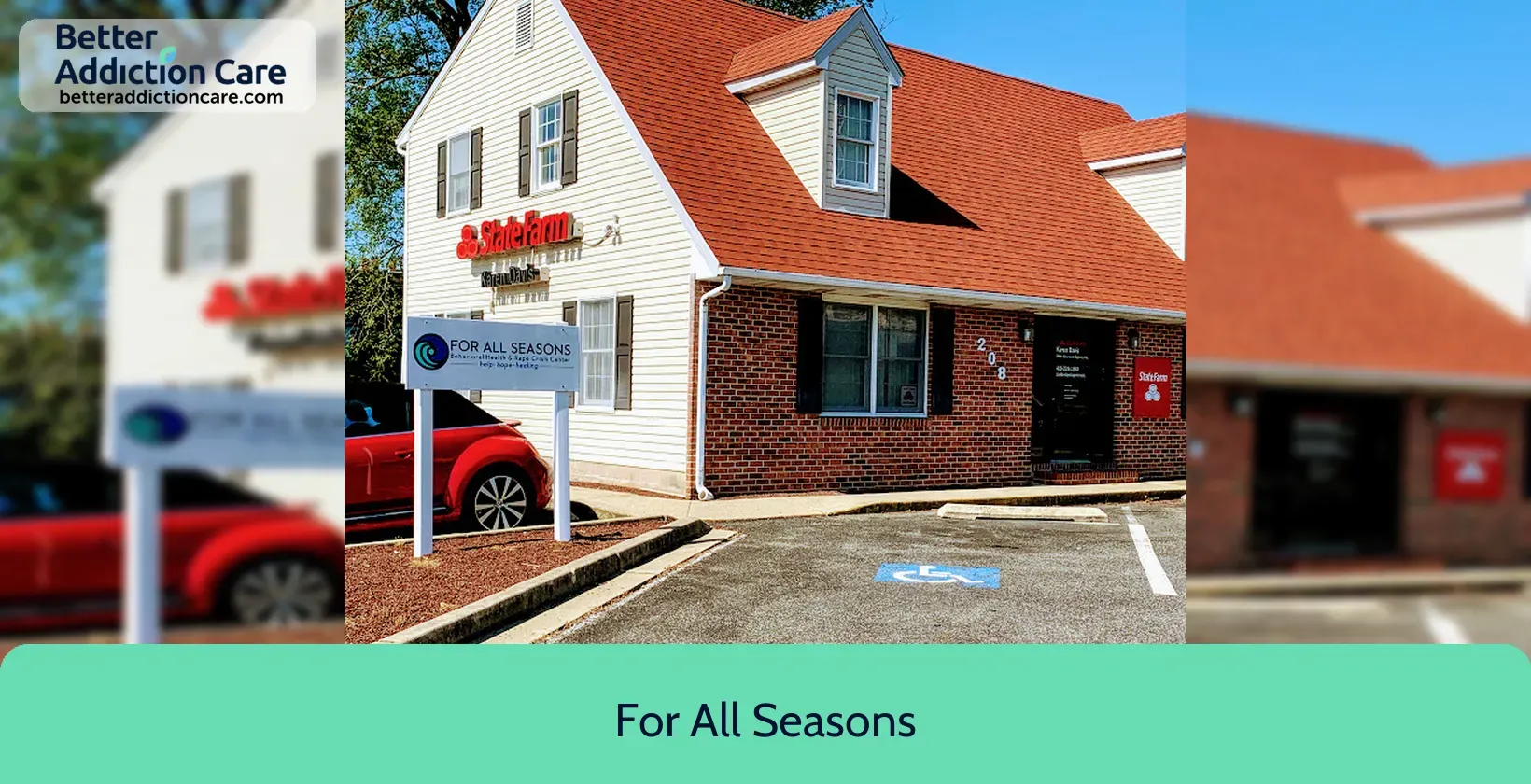
6.85
DISCLAIMER: The facility name, logo and brand are the property and registered trademarks of For All Seasons, and are being used for identification and informational purposes only. Use of these names, logos and brands shall not imply endorsement. BetterAddictionCare.com is not affiliated with or sponsored by For All Seasons.
